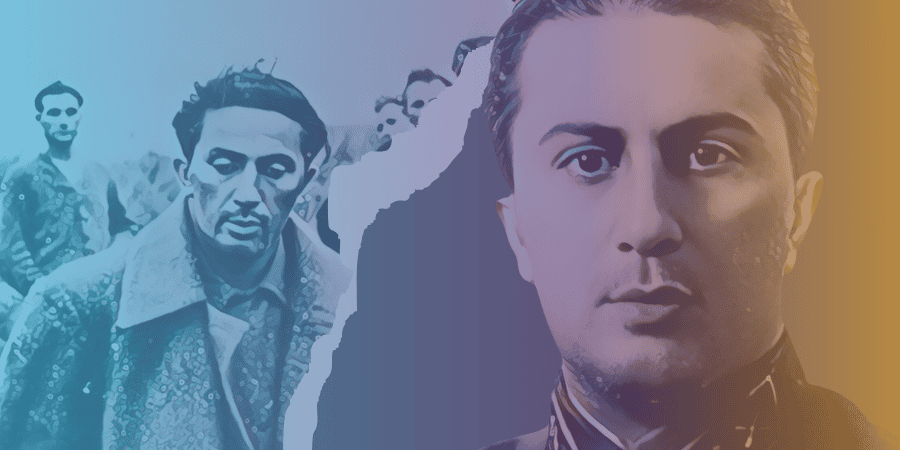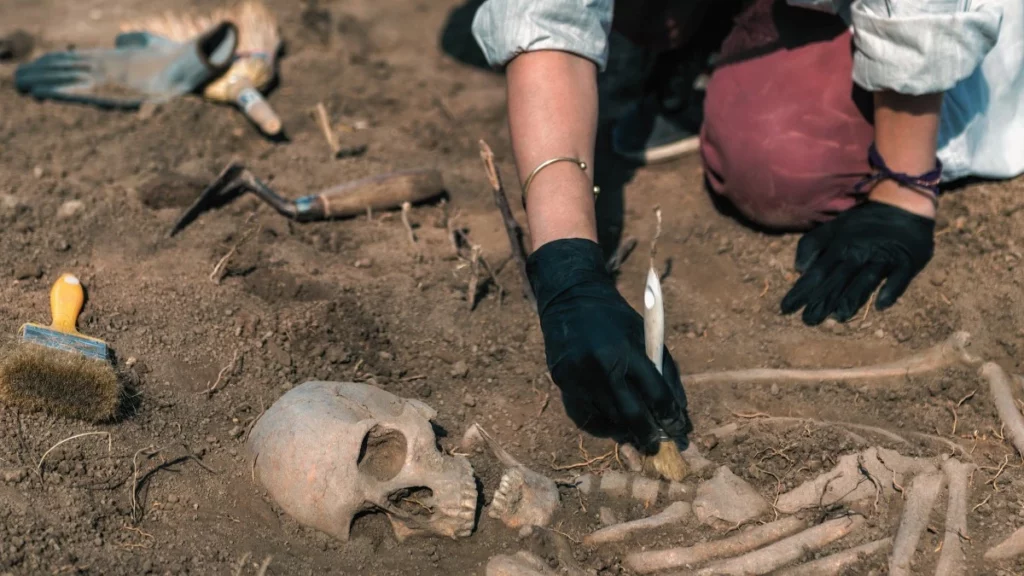Key Takeaways
- Yakov Dzhugashvili, Stalin's eldest child, had a difficult relationship with his father who viewed him as weak and unworthy of his affection.
- After joining the Red Army, Yakov was captured by the Nazis and held at Sachsenhausen concentration camp where he suffered from depression and conflicts with other prisoners.
- Yakov died in April 1943 after approaching the camp's electrified barbed wire fence, an act interpreted as a deliberate suicide.
- The circumstances of Yakov's death remained a mystery for decades, and it is unclear whether Stalin ever learned the true cause of his son's death.
- Yakov's story sheds light on the complex and tragic personal lives of the leaders of the Soviet Union during the 20th century.
Yakov Dzhugashvili, Joseph Stalin’s eldest child, was born in March 1907 to Stalin’s first wife, Ekaterina Svanidze.
When Ekaterina passed away from tuberculosis, Yakov was left in the care of an aunt in Georgia.
Father and son did not reunite until four years after the October Revolution of 1917. Stalin, however, viewed his son as weak and unworthy of his affection.
Yakov’s only source of support in the family was Nadezhda Alliluyeva, Stalin’s second wife, who Yakov considered a sister rather than a stepmother.
Nadezhda committed suicide in November 1932, leaving Yakov to face his father’s relentless bullying alone.
Red Army Soldier and Prisoner of War
Seeking an escape from Stalin’s torment, Yakov joined the Red Army, only to be captured by the Nazis after his artillery unit was annihilated in the early stages of the war.
Upon learning his identity, the Germans gleefully announced his capture but failed to coerce him into denouncing his father’s regime.
The Germans proposed exchanging Yakov for Field Marshal Friedrich Paulus, a high-ranking German officer captured at Stalingrad, but Stalin allegedly refused the offer.
British officials discussed informing Stalin about the circumstances of his son’s demise during the Potsdam Conference in July 1945, but ultimately decided against it due to the sensitive nature of the Anglo-Russian quarrels that preceded Yakov’s death.

Life and Death at Sachsenhausen Concentration Camp
Yakov was held at Sachsenhausen concentration camp near Berlin, where he shared a hut with another Soviet officer, Vassily Kokodin, and four British prisoners of war.
Although their living conditions were relatively comfortable compared to the rest of the inmates, tensions arose between the Soviet and British prisoners.
Yakov’s depression deepened as a result of these conflicts.
On April 14, 1943, Yakov approached the camp’s electrified barbed wire fence, disobeying a sentry’s order to stop.
The sentry opened fire and killed him instantly. Yakov’s actions were interpreted as a deliberate act of suicide.
The Mystery of Yakov’s Death
Allied military intelligence agents discovered an SS report on Yakov’s death in 1945.
British officials discussed informing Stalin about the circumstances of his son’s demise during the Potsdam Conference in July 1945, but ultimately decided against it due to the sensitive nature of the Anglo-Russian quarrels that preceded Yakov’s death.
The file on Yakov Dzhugashvili was closed and remained a secret until it was declassified three decades later. It remains unclear whether Stalin ever learned the true cause of his son’s death.
The Soviet leader passed away in March 1953, leaving little indication that he grieved for his eldest child any more than he did for the countless others who perished during his rule.








